 The deadline to comply with the “Intermediary Guidelines” issued by the Ministry of Electronics and Information Technology (MEITY) ended on 25 May 2021 for Facebook, WhatsApp, Twitter, and others. For most of the part, the guidelines are not hard to comply with. To its credit, the government has given the intermediaries significant amount of time to take the necessary actions.
The deadline to comply with the “Intermediary Guidelines” issued by the Ministry of Electronics and Information Technology (MEITY) ended on 25 May 2021 for Facebook, WhatsApp, Twitter, and others. For most of the part, the guidelines are not hard to comply with. To its credit, the government has given the intermediaries significant amount of time to take the necessary actions.
However, none of the major social media majors at whom the guidelines were aimed at, have bothered to fully comply. It looks like they were hoping for the deadline to be extended, which didn’t happen in this particular case.
Twitter has not commented. Facebook said it “aims to comply,” and also wants to discuss some “issues which need more engagement.” Google said it has a “long history” of compliance.
WhatsApp has responded by filing a lawsuit in the Delhi High Court against the guidelines using the ‘privacy’ pretext. It is ironic that the social messaging major has used the ‘privacy’ argument to oppose the guidelines, especially when it has been widely accused by users as a usurper of users’ privacy rights.
Its argument is particularly in the context of rule to “enable identification of the first originator of the information” for certain types of messages. It says that enabling this feature would break its “end-to-end encryption” and undermine people’s right to ‘privacy.’
Sometime after the beginning of this year, WhatsApp started notifying its users that it had updated its privacy policy and the users could either accept the new policy or quit using WhatsApp by 8 February 2021. Later, it extended the deadline to accept the new privacy policy by 15 May.
Better World had done a quick survey with 565 users, in which only around 18% user said the change didn’t bother them at all. Of the remaining 82%, 37% users considered the new privacy policy a serious breach of their privacy, while 45% said they it was not good, though they could live with it.
To see the survey details, read: Better World User Survey on WhatsApp Privacy Policy.
Interestingly, the survey also showed a majority of users had no qualms in leaving WhatsApp on privacy issue. Around 18% of respondents said they had already quit WhatsApp as the only app, while another 25% said they planned to do so within a week’s time and yet another 29% said they planned to quit in a month’s time.
The key alternatives to WhatsApp are Telegram and Signal, albeit they have significantly less number of users when compared with WhatsApp. For instance, Telegram is estimated to have around 500 million users as against 2 billion WhatsApp users globally. In India, WhatsApp has around 530 million users, as per industry estimates. (It goes without saying that other social messaging platforms will also need to comply with the new guidelines as much as WhatsApp.)
Rules that intermediaries are required to comply with
The rules were published on 25 February 2021 by Ministry of Electronics and IT (MEITY)
- Due diligence to followed by intermediaries: the rules prescribe due diligence that must be followed by intermediaries, including social media intermediaries. in case, due diligence is not followed by the intermediary, safe harbor provisions will not apply to them.
- There will be two categories of social media intermediaries, namely, social media intermediaries and significant social media intermediaries, based on the number of users on the social media platform. The rules require the significant social media intermediaries to follow certain additional due diligence.
- Grievance redressal mechanism: The intermediaries should establish a grievance redressal mechanism for receiving resolving complaints from the users or victims. intermediaries shall appoint a grievance officer to deal with such complaints and share the name and contact details of such officer. Grievance officer shall acknowledge the complaint within 24 hours and resolve it within 15 days from its receipt.
- Ensuring online safety and dignity of users, especially women users: Intermediaries shall remove or disable access within 24 hours of receipt of complaints of contents that exposes individuals in full or partial nudity or is in the nature of impersonation, etc. Such a complaint can be filed either by the individual or by any other person on his/her behalf.
- Additional due diligence to be followed by significant social media intermediary:
- Appoint a chief compliance officer who shall be responsible for ensuring compliance with the Act and Rules. Such a person should be a resident in India.
- Appoint a nodal contact person for 24×7 coordination with law enforcement agencies. Such a person shall be a resident in India.
- Appoint a resident grievance officer who shall perform the functions mentioned under Grievance Redressal Mechanism. Such a person shall be a resident in India.
- Publish a monthly compliance report mentioning the details of complaints received and action taken on the complaints as well as details of contents removed proactively by the significant social media intermediary.
- Enable identification of the first originator of the information that is required only for the purposes of prevention, detection, investigation, prosecution or punishment of an offence related to sovereignty and integrity of India, the security of the State, friendly relations with foreign States, or public order or of incitement to an offence relating to the above or in relation with rape, sexually explicit material or child sexual abuse material punishable with imprisonment for a term of not less than five years. Intermediary shall not be required to disclose the contents of any message or any other information to the first originator.
- Have a physical contact address in India published on its website or mobile app or both.
- Provided an appropriate mechanism for users to verify their accounts and provided with demonstrable and visible mark of verification.
- Provide users an opportunity to be heard in cases where intermediaries remove or disable user access to any information on their own accord. A prior intimation shall be communicated to the user who has shared that information with a notice explaining the grounds and reasons for such action. Users must be provided an adequate and reasonable opportunity to dispute the action taken by the intermediary.
- Removal of unlawful information: An intermediary upon receiving actual knowledge in the form of an order by a court or being notified by the Appropriate Govt. or its agencies through authorized officer should not host or publish any information which is prohibited under any law in relation to the interest of the sovereignty and integrity of India, public order, friendly relations with foreign countries etc.


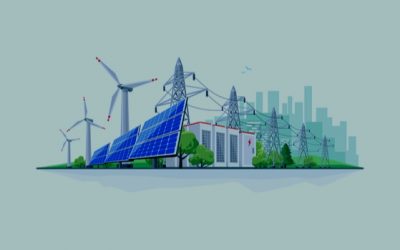
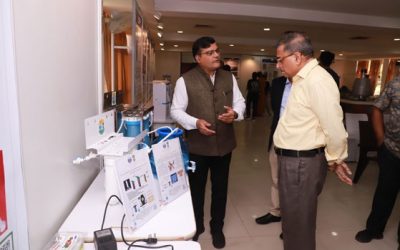

 The exhibition is covering technologies developed by the Bhabha Atomic Research Centre (BARC), Raja Ramanna Centre for Advance Technology, Indore and other Units of Department of Atomic Energy (DAE), which are useful for the common man in day-to-day life, e.g., in the field of health, agriculture, water, food security and environment, said a PIB release.
The exhibition is covering technologies developed by the Bhabha Atomic Research Centre (BARC), Raja Ramanna Centre for Advance Technology, Indore and other Units of Department of Atomic Energy (DAE), which are useful for the common man in day-to-day life, e.g., in the field of health, agriculture, water, food security and environment, said a PIB release.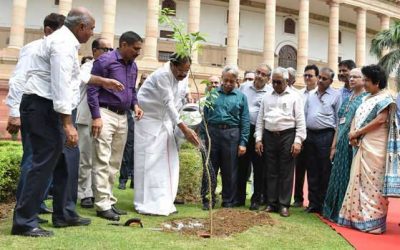
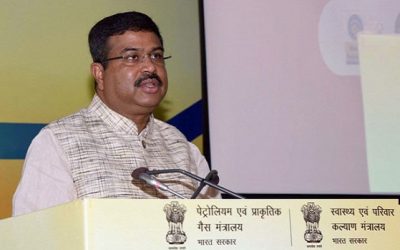


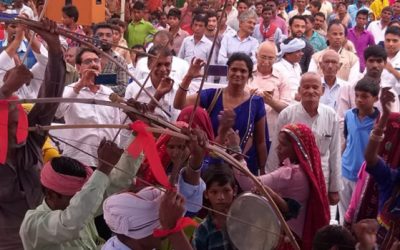



0 Comments